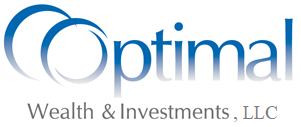When do I implement a Roth Conversion?
A previous blog outlined what is a Roth Conversion, as it can be a valuable strategy to further solidify a long-term financial plan. The next reasonable question would be when to implement such.
There can be a perfect answer to this, but often one will not know with certainty when is best. If you own an IRA, you have a co-partner. The government. The tax man. Uncle Sam. Ideally, an owner would limit or eliminate Uncle Sam’s share. With a Roth IRA, there is no co-owner. If an IRA owner does a full Roth conversion, the owner eliminates the co-stakeholder, locking in the current tax rates.
The Perfect Time
On a personal basis, I had a perfect time. The reason was a career change, filing taxes as self-employed/new business, and married with dependents. Prior to the conversion, my tax rate was zero and unused tax credits. The tax on my IRA to Roth conversion was ~2% on $50,000, as the first $40,000 was untaxed (used some of my tax credits) and the last $10,000 was taxed at 10%. I paid a total of $1,000 to move $50,000 from IRA tax deferral registration to having $50,000 in a tax-free Roth IRA registration.
During my time employed, I deferred at ~25% federal tax rate and 3% to 5% Illinois income tax rate. The 25% was reduced to 2%, a difference of $11,500 on the federal side. With Illinois currently not taxing retirement distributions, the potential tax of $1,500-$2,500 was eliminated. This was the perfect time, for me.
General Situations to Strongly Consider a Roth Conversion
- Low-income years, stemming from:
- Health issue
- Career transition/starting a business
- Early retirement
- Prior to claiming Social Security
- Severed employment
- Bonuses not met
- Expected changes at the Federal or State level
- Noting legislative changes in the tax code
- Expected changes of your personal marginal tax rate
- Career trajectory equates to expected higher marginal tax rates in future years making current marginal tax rate attractive
- Small business owner directly expensing capital equipment
- Ability to purchase equipment/capital assets and directly reduce taxable income to a low marginal tax rate
- Legacy planning
- The gift of a tax-free Roth IRA to a family member is certainly a wonderful gift
- Evaluate the tax rates of your heirs: high, medium, or low
- If diagnosed with a terminal illness, consider the options and tax rates
- Solidifying a financial independence/retirement plan
- Since nobody is a tax rate fortune teller, we don’t know what future tax rates will be
- Given that a Roth conversion reduces the government’s co-ownership of your IRA, it reduces one’s risk to upward tax changes
- If reducing this risk increases the integrity and confidence of your financial plan, then it might be worth the current tax bill (even though one will not know if it was the optimal decision without hindsight)
- Locking in the known for the unknown
- Remaining spouse
- In the year of passing, as well as the following year, a surviving spouse can file taxes as married filing jointly, potentially making the marginal tax bracket favorable for a conversion
This is not an exhaustive list. Each situation and financial circumstance needs to be thoroughly evaluated when considering a Roth conversion. At Optimal Wealth & Investments, we would enjoy the opportunity to help in this evaluation. Please reach out for an initial consultation.
Adam Chaney
Certified Financial Planner, CFP®
Chartered Retirement Planning CounselorSM (CRPC®)
Accredited Portfolio Management AdvisorSM (APMA®)
https://www.linkedin.com/in/adam-chaney-cfp-81193210
Investing involves risk including loss of principal.
Securities & Advisory Services offered through LPL Financial, a Registered Investment Advisor. Member FINRA/SIPC. Optimal Wealth & Investments and LPL Financial are separate entities.
If considering a Roth conversion, it is important to consult with your financial advisor, tax planner, accountant, and/or other qualified professional to fully understand the benefits and consequences of such.
